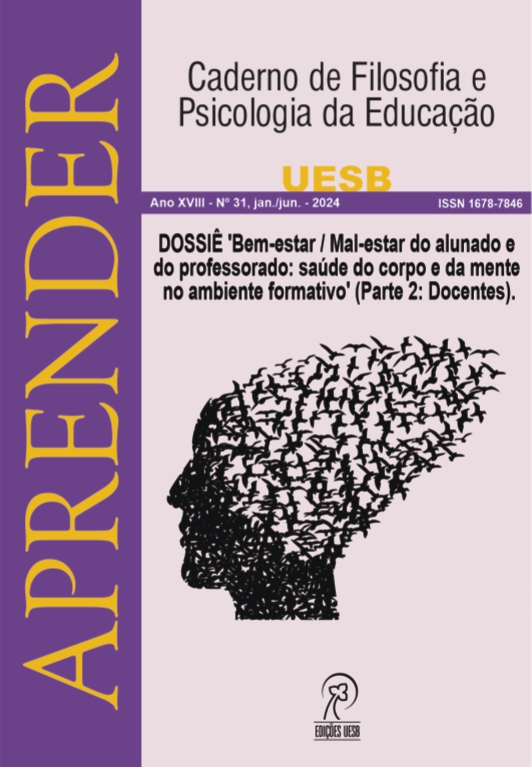Approaches - Archeology and Psychophysiology: Freud, Nietzsche and the transpositions on good and disease in teaching life
DOI:
https://doi.org/10.22481/aprender.i31.14455Keywords:
Archeology, Physiopsychology, Teacher well-being, Nietzsche, FreudAbstract
In the light of some ideas from Freud and Nietzsche, we intend to create some transpositions that help us think about the well-being or discomfort of teachers, highlighting that these states of mind are not dissociated from our human condition, nor separated from the public policies that guide the guidelines of education and the status of the teaching profession in our country. We seek to extract some key ideas from these cultural theorists: the archeology of the city of Rome carried out by Freud in The Malaise of Civilization to reflect on what builds us as teachers. In the second moment, we discuss Nietzsche's physiopsychology because the way we look at the world and teaching will ultimately determine our well-being or discomfort. Finally, still rescuing the ideas of the German thinker in Thus Spoke Zarathustra, we will find some sources of inspiration in search of our well-being.
Downloads
References
ASSOUN, Paul Laurent. Nietzsche e Freud. Semelhanças e Dessemelhanças. São Paulo: Brasiliense, 1991.
FREUD, Sigmund. Mal-Estar Na Civilização. São Paulo: Abril Cultural. Col. Os Pensadores, 1979.
GIACÓIA, Oswaldo. O Grande Experimento: Sobre A Oposição Entre Eticidade (Sittlichkeit) E Autonomia Em Nietzsche. Revista Transformação. São Paulo: Unesp, 1988. p. 97-132. Disponível também em: http://www.scielo.br/pdf/trans/v12/v12a08.pdf.
________________. Nietzsche. São Paulo: Publifolha, 2000.
________________. Nietzsche como Psicólogo. São Leopoldo-RS: Editora Unisinos, 2004.
________________. Além do Princípio do Prazer. Um dualismo incontornável. Rio de Janeiro: Civilização Brasileira, 2008. Coleção Para Ler Freud.
NIETZSCHE, Friedrich. Gaia Ciência. Lisboa: Guimarães Editores, 1987.
___________________. Genealogia da Moral. São Paulo: Brasiliense, 1988a.
___________________. Para Além de Bem e Mal. São Paulo: Cia das Letras, 1992.
___________________. Assim Falou Zaratustra. Lisboa: Guimarães Editores, 1988b.
___________________. A Vontade Dionisíaca do Mundo. São Paulo: Martins Fontes, 2005.
__________________. 2. Extemporânea. Da Utilidade e dos Inconvenientes da História para a Vida. Porto: Editorial Presença, 1976. Col. Síntese.
Downloads
Published
How to Cite
Issue
Section
License
Copyright (c) 2024 APRENDER - Caderno de Filosofia e Psicologia da Educação

This work is licensed under a Creative Commons Attribution-ShareAlike 4.0 International License.






